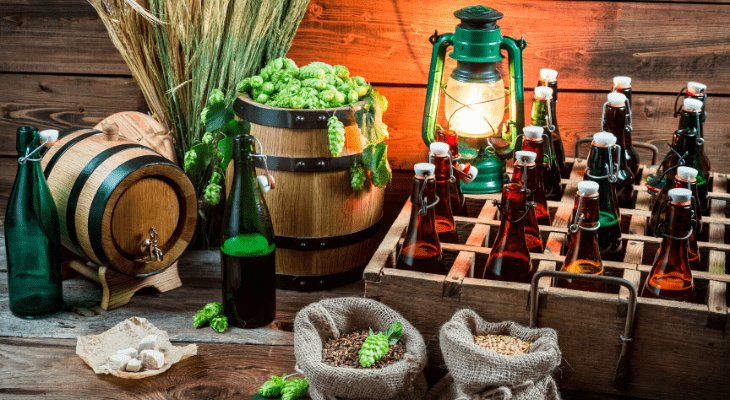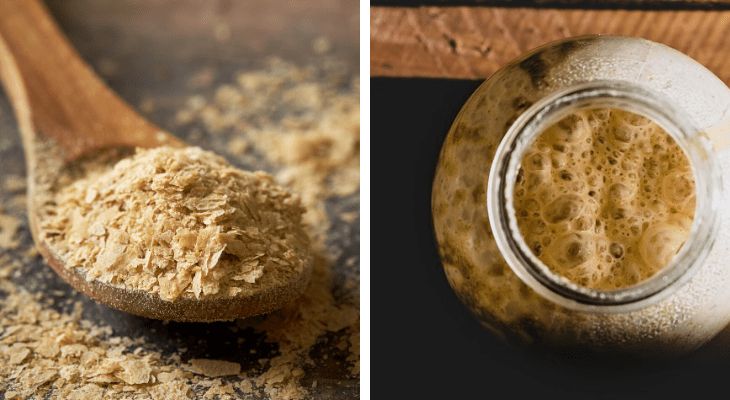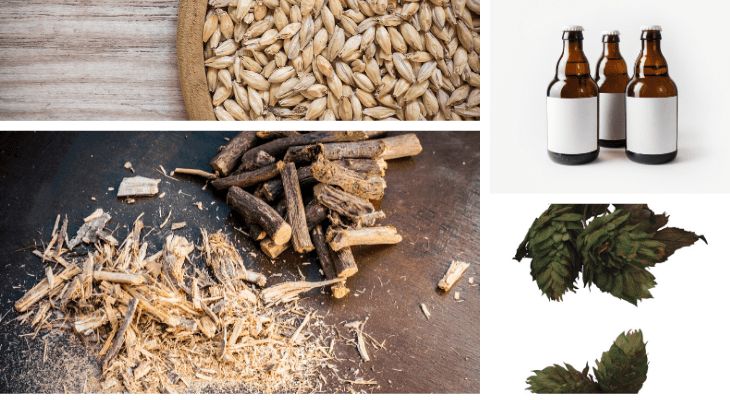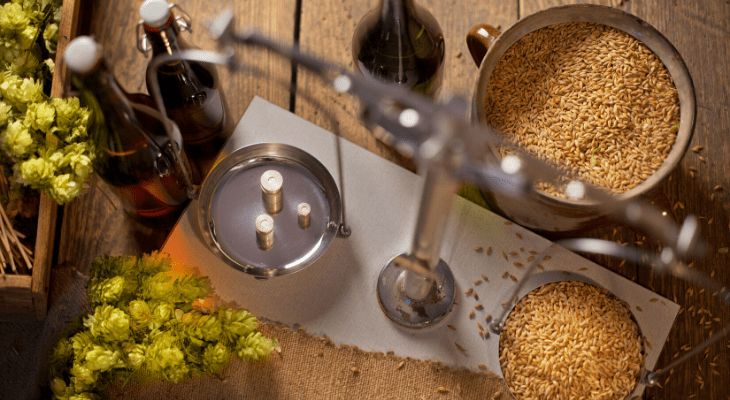Beer Kits Expiration? 17 Facts about Beer Kits for Brewing

There is a lot to take into account while brewing beer at home, right? Especially when it comes to the expiration of all the different ingredients included in the brewing process.
Certainly, there is also a difference between using fresh ingredients or the ingredients in beer brewing kits.
Do beer kits expire? When dealing with commodities for beer, whether it’s fresh or not, it’s a matter of course to control expiration. Also here there is a big difference, depending on which commodities you are dealing with. But, fresh or not, all ingredients in beer brewing has an expiration date.
Fresh produce has, of course, a shorter expiration date than processed commodity (prefabricated commodity).
Interesting, right? Take a look at this post as it will take you through all facts about beer kits, its expiration, fresh commodities expiration while brewing beer, and much more.
Read Also: What Is The Best Home Brewing Kit For Beginners?
How Long Do Beer Kits Last? (Expiration date)
There are several different beer brewing kits which also come with various ingredients.
It means, that the expiration date on the products are thereby also very different.
Also, there are different opinions about the different ingredients’ shelf life. But better safe than sorry, I always say. If you are in doubt about an ingredients expiration date, stick to what the manual for your beer kit says, or ask the dealer.
In the following, I will review the general shelf life of the yeast, grains, malt extract, and hops in a beer brewing kit.
Yeast
Let’s take a look at both dry yeast and liquid yeast, shall we?
Dry yeast can actually have a pretty long expiration date if the yeast is stored correctly. At room temperature, the yeast can be viable up to 1 whole year.
Liquid yeast has a shorter viable than dry yeast. I recommend using the yeast within three months of the production date. This will give you the best result.
The yeast might be able to last longer than three months, but not more than six months. Are you using your yeast after six months, you should use a yeast starter then.

Grains
Are your grains un-milled? Then they can probably last for about a year. Are your grains milled instead? You should use them within 2-4 weeks. Milled grains, as opposed to u-milled grains, stale quickly.
TIP: Store your grain in container that will keep the grains dry and airtight. Also, store them in relatively cool or room temperature
Malt extract
Just as the yeast, the malt comes in both a liquid and dry version. Also here with two different expiration dates.
Liquid malt extract can easily be stored for a year, or maybe even more than that. But, the longer you make it last, the more the oxidation of the malt will increase.
Dry malt extract can be stored up to 1,5 years. In this case, you have to store it in a dry and cool place. It can’t be exposed to moisture. This will downgrade the quality.
Hops
The hops can last up to a year in the a refrigerator. The longer you store the hops, the more bitter they will be.
Overall for the ingredients
In general, I will recommend you not to store your dry ingredients in the fridge. There is usually high humidity, which is not good for the dry ingredients. Liquid ingredients should be stored in cool places. This could be the fridge.
TIP: If the ingredients in your kit are fresh I recommend you to start brewing within 2-3 weeks. Thereby you will obtain the best result.
Also read: Best Beer Recipe Kits
17 Facts about Beer Kits for Brewing
Hold on, as this following list will take you through 17 facts about brewing and beer kits:
- All beer brewing kits have an expiration date.
- Not all brewing kits has the same expiration date, it all depends on which kind of kit you’ve got.
- The different elements in your beer brewing kit certainly have different expiration dates.
- The expiration of the different elements in the kit depends on how and where they are stored.
- Most beer brewing kits contain everything you need for home brewing, including a recipe
- Beer kits typically contain the grain, sugar extract, hops, flavorings, and the yeast
- There are a wide range of kits for different beer varieties
- If you already have all the ingredients for brewing but just need the equipment, there is also a kit for that
- If you have all the equipment but need the ingredients, there is a kit for that too
- Beer brewing kits comes in different severities. Some kits has everything prepared, which makes it very easy to brew. Others are a bit more tricky where you may have to mash the ingredients, chill the wort, and so on.
- The price of kits varies a lot, of course depending on the quality and size.
- The newer/fresher the ingredients from your beer kit is, the better the beer becomes. It is possible to brew a beer of an ‘older’ beer kits’ ingredients, but it will be noticeable in the taste
- In the long run, it can be cheaper to buy a beer brewing kit and make your home brewed beer, than buy bottles or cans of beer. But, brewing at home should not depend on the price of beer, it should depend on the interest and passion of brewing
- There are a big difference in the quality of the brewing kits, so make sure to do your research before buying a kit. It should meet your needs.
- Are you a beginner in brewing? you should stick to the recipe in your beer kit
- If you want to experimenting with the recipe, you can try to add some ingredients or spices like bitter orange, sweet orange peel, coriander seed, paradise seed, licorice roots, or other exciting ingredients
- A personal advice from me is for you to get a pair of good gloves while disinfect the equipment i boiling water. It can give you some serious burns without the gloves, and these gloves are usually not included in the kit
Click here to read more about the best home brewing kits: What is the Best Home Brewing Kit for Beginners?

Is It Cheaper to Brew Your Own Beer?
Life’s big question, right. And it all depends. If you are brewing the same amount of beer, as you normally would buy in stores, you would normally have to buy a lot of beer, before the home brewing saves you money. At least, that is my own experience.
You can always make it cheaper than the average by buying cheap materials and ingredients. You don’t necessarily have to buy the most expensive, most fancy equipment. Although, you should not compromise about the quality of the ingredients.
I don’t say, that cheap ingredient can’t be of good quality. I just say, that you should be critical about the ingredients. You don’t wanna compromise with the quality of your beer.
Most likely, you wouldn’t save lots of money by brewing at home. Also, if time is money, you will not be able to save money on home brew. But again, your driving force should not be the price, but your interest and passion for brewing your own beer.

If you really would like to save money on your home brew, you would have to do the most by yourself. By the most I mean to grow some of your own ingredients, for example hops.
Also, if you are one of those brewers who buys water for brewing, you don’t necessarily have to. As long as the water is free of odors and contaminates, it can generally be used in the brewing.
If you are an experienced all-grain brewer, here is something for you. Mill your own grain. On the long run, this could save you money on some fronts. But, of course you would have to buy a bulk, so yeah, in the long run.
Would you like to read more about whether you save money on home brewing or nor, check out this post: Does Home brewing Save Money?
Tip: Most commonly, bigger amounts means cheaper prices. If you really wanna save money, you can always find another home brewer to share the ingredients and equipment with.
Also read: 1 Gallon Beer Kits



